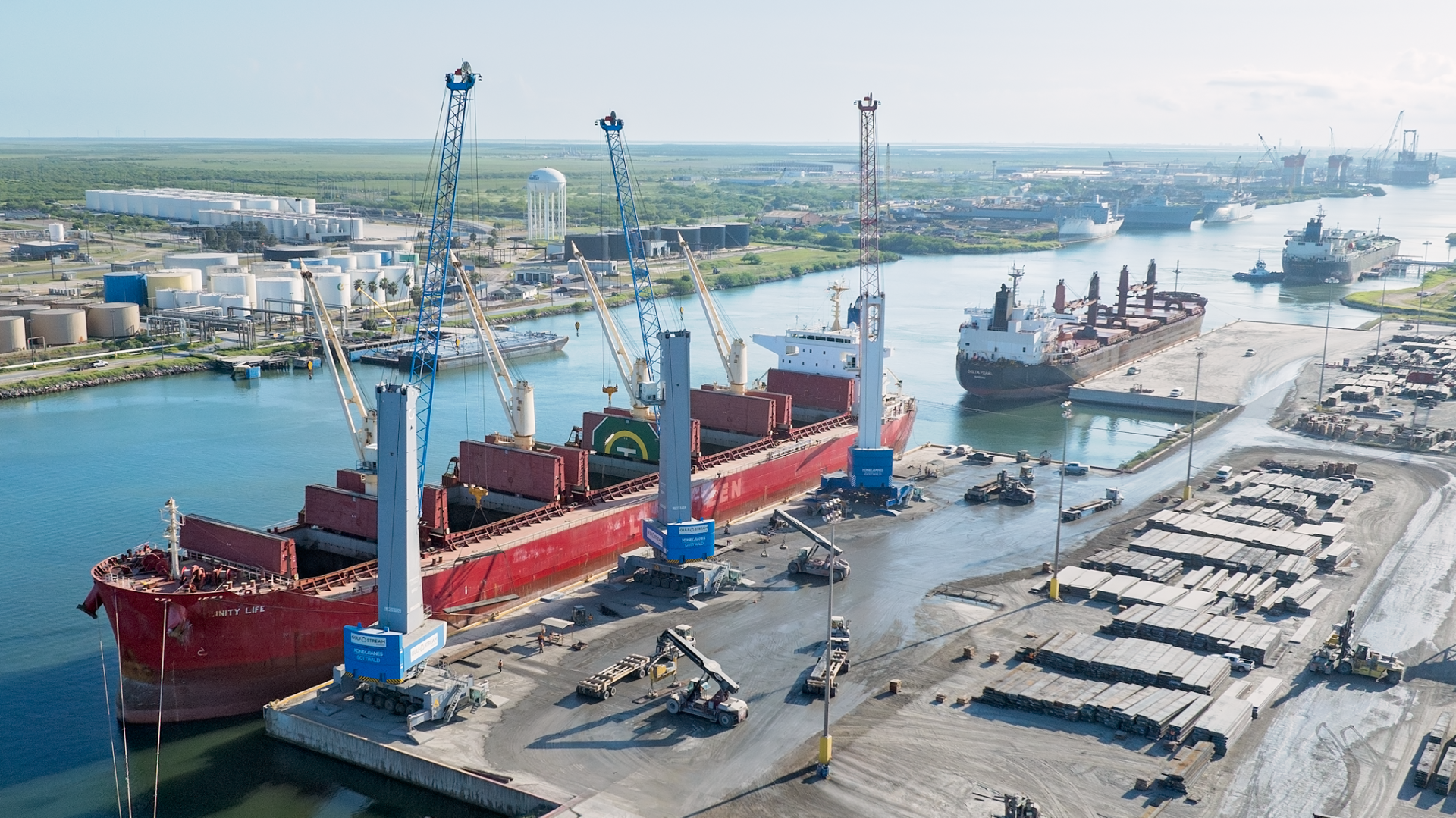|
Only have a minute? Listen instead
Getting your Trinity Audio player ready...
|

The Port of Brownsville’s Foreign Trade Zone ranked third among the nation’s FTZs in terms of exports in 2023, according to the FTZ Board’s 85th annual report to Congress, published Aug. 28.
The port’s FTZ (No. 62) handled $7 billion worth of exports in 2023, a bit less than the more than $8.2 billion in exports the port moved in 2022, when it was ranked second in the nation by the FTZ board. Also for 2023, the port made the top 20 list among FTZs for imports, moving $3.32 billion in imported commodities, putting it in 14th place nationally.
An FTZ is a specially designated site near a U.S. port-of-entry inside which importers and exporters are able to import and export goods without having to pay normal customs duties, taxes and fees. FTZs are meant to help U.S. companies compete globally by designating them outside U.S. customs territory as far as duties are concerned.
There are nearly 300 FTZs in the United States. FTZ No. 62 has been ranked in the top five since 2012.
Port Director and CEO William Dietrich called the port’s FTZ “an indispensable asset that significantly bolsters the economic landscape of the Rio Grande Valley and Northern Mexico.”
“By providing logistical support and cost-savings to diverse industries, it plays a pivotal role in job creation and economic development across the region, strengthening the (port’s) position as a premier location for business,” he said.
FTZ No. 62, among the largest in the state, includes the Port of Brownsville, Brownsville South Padre Island International Airport, Valley International Airport, Harlingen Industrial Park and Airpark, NAFTA Industrial Park in Brownsville, and Los Indios’ FINSA Industrial Park. More than 100 businesses operate within the zone, with major commodities including petroleum products and machinery; iron, steel and other metals; and leather, fiber and other textiles.
The port said business activity within FTZ No. 62 supports thousands of jobs in the Valley.
Tony Rodriguez, the port’s FTZ administrator and director of Cargo Services, said the FTZ allows companies to navigate the customs process more efficiently, making them more competitive in the marketplace.
“Reliable, timely and cost-effective services make all the difference in keeping the supply chain strong,” he said.



